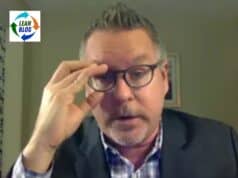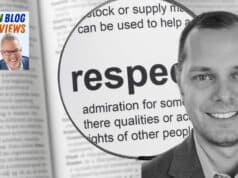
 Recently, I had the wonderful opportunity to have a telephone chat and discussion with Norman Bodek, a man who needs little introduction to this lean audience. Norman is, most recently, the author of books such as All You Gotta Do Is Ask
Recently, I had the wonderful opportunity to have a telephone chat and discussion with Norman Bodek, a man who needs little introduction to this lean audience. Norman is, most recently, the author of books such as All You Gotta Do Is Ask and Kaikaku: The Power and Magic of Lean
.
Stay tuned later this week for additional installments of the interview.
Q: Mr. Bodek, thanks for agreeing to talk, what lean topics are you talking about most lately?
A: I'd like to talk really about empowering people, the concept of Toyota developing people, the concept of how do we really become a lean company, and what's stopping us?
Q: It's often said 50% of companies are trying to be lean, but only 2% are actually doing it. What are the obstacles that stand in the way of companies actually implementing lean?
A: The real challenge for us in America is both an accounting problem, the measuring system which puts pressures on management is in the opposite direction of lean, and how we develop people. In our measurement system, inventory is a very powerful metric for managers. Managers know at the end of every quarter, especially if they're a public company, they have to produce as much inventory as possible.I don't even have to sell it!
In lean, we know we should eliminate inventory, but how can I eliminate it if the board wants profits this month?
What is Toyota doing that we're not doing? We in America are going to China.We think that's going to save our manufacturing efforts, to get cheap labor and produce quality products through china. Yet, Toyota comes here. They're the one making the money, how does Toyota do it?
I was in Georgetown and 75% of the part content was made in America, the goal is 100%, with American workers, they're paid very well.
Q: But they don't have retirement costs here, like GM, right?
A: They do have a full retirement plan and retirees there, they have a huge retirement process in Japan, probably equal to GM.
Let's talk about the two pillars of their success:
1) Just-in-time or lean, which is a simple focus on eliminating non-value-added activity and waste (8 types of waste). They are relentless in getting rid of that waste, inventory, defects, etc. The biggest waste is, of course, the underutilization of people's talents.
2) Toyota really tries to support the 8th waste, with a principle called “respect for humanity”. Jidoka is giving people the power to stop working, not just themselves, but the other workers in working to resolve a problem so a defect is not passed onto a customer.
I am given the respect that I can stop everything else from working to find the root cause and prevent the same problem from happening again.
Q: How are companies learning about these pillars and emulating Toyota?
The real difference is that what Toyota does today isn't hidden anymore. When I first went to Japan, and I spoke to [Taiichi] Ohno and asked him for information, he said, “we don't have anything written down.” I sort of laughed, and I knew why he was saying that because they just didn't want to share their secrets.
But now, everything is printed. Ohno gave me everything, and [Shigeo] Shingo gave me everything: the principles I brought over from Japan, and the Shingijitsu people brought us the kaizen blitz. We've learned virtually everything Toyota is doing, but not 100% of course. It's available to us today, yet Toyota is making a bundle and we're not. I think the missing power at this moment, the lean side we have the handle, we follow the elimination of waste relentlessly, we know how to do that, it's not complicated.
The other side, for some reason, we can't emulate, which is how do we develop our people?
Q: Why are American companies having trouble emulating that piece?
There are very simple differences. It's all available if we can just wake up managers to doing it. It's not the people, the workers, the workers are wonderful, Toyota is showing us how wonderful they are. We [Americans] look at people as if they're expendable. Toyota develops people and teaches them skills, they realize long-term success comes from building up peoples' skills. We say people are our most important asset, but we don't mean it.
A company is people. You can buy the machines anywhere, the differential is the talent I have in people. The more I invest in people, the more I develop in people, the stronger my company. It's what has made companies like IBM, GE, and AT&T (in the past as a model) successful, they invested in their people.
GM didn't do that because Frederick Taylor and Frank Gilbreath in the early 1900s, they came up with a philosophy that was “we want the worker to work, we don't want them to think, leave their brains outside.” Thinking and planning was management's job and the workers do the work.
Toyota did the same thing until about 1970, until they realized what a terrible waste; we're not developing our people. The advantage was, at the time, they had lifetime employment, so if I'm keeping this person for a lifetime, I should really invest in them to get the most out of them. Developing people isn't so complicated, that's what I try to teach. All you do is ask people to solve the problems they're faced with every day.
Please scroll down (or click) to post a comment. Connect with me on LinkedIn.
Let’s build a culture of continuous improvement and psychological safety—together. If you're a leader aiming for lasting change (not just more projects), I help organizations:
- Engage people at all levels in sustainable improvement
- Shift from fear of mistakes to learning from them
- Apply Lean thinking in practical, people-centered ways
Interested in coaching or a keynote talk? Let’s talk.
Join me for a Lean Healthcare Accelerator Trip to Japan! Learn More










[…] is Part 1 of the Q&A, if you missed it. Check out my Podcasts with Norman Bodek, as […]
Comments are closed.